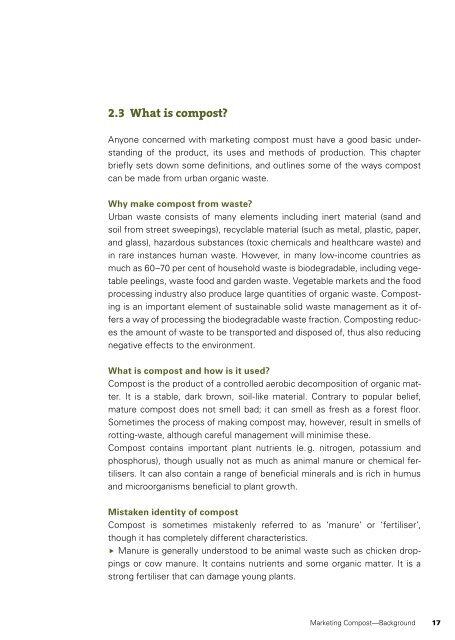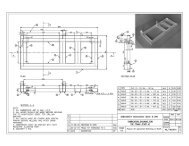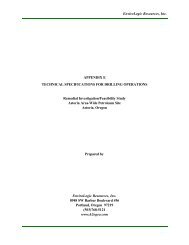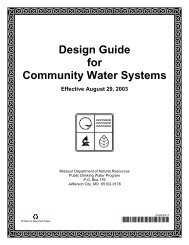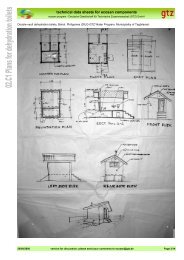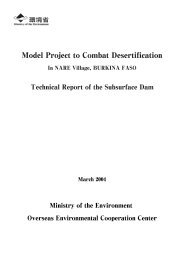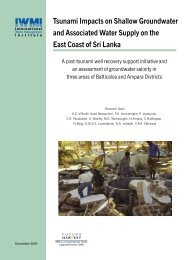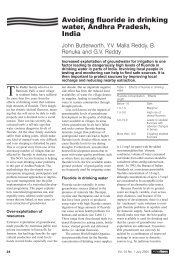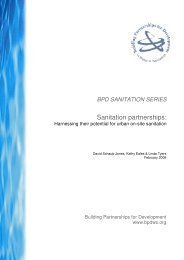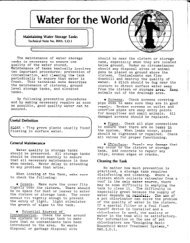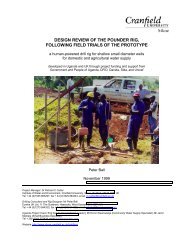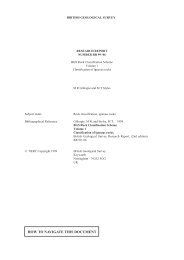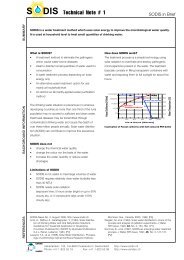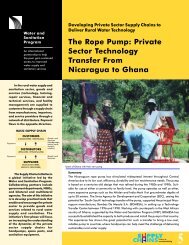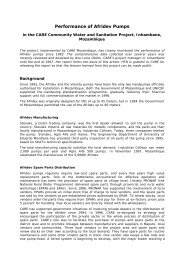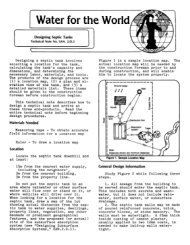Marketing Compost (EAWAG) - The Water, Sanitation and Hygiene
Marketing Compost (EAWAG) - The Water, Sanitation and Hygiene
Marketing Compost (EAWAG) - The Water, Sanitation and Hygiene
Create successful ePaper yourself
Turn your PDF publications into a flip-book with our unique Google optimized e-Paper software.
2.3 What is compost<br />
Anyone concerned with marketing compost must have a good basic underst<strong>and</strong>ing<br />
of the product, its uses <strong>and</strong> methods of production. This chapter<br />
briefly sets down some definitions, <strong>and</strong> outlines some of the ways compost<br />
can be made from urban organic waste.<br />
Why make compost from waste<br />
Urban waste consists of many elements including inert material (s<strong>and</strong> <strong>and</strong><br />
soil from street sweepings), recyclable material (such as metal, plastic, paper,<br />
<strong>and</strong> glass), hazardous substances (toxic chemicals <strong>and</strong> healthcare waste) <strong>and</strong><br />
in rare instances human waste. However, in many low-income countries as<br />
much as 60–70 per cent of household waste is biodegradable, including vegetable<br />
peelings, waste food <strong>and</strong> garden waste. Vegetable markets <strong>and</strong> the food<br />
processing industry also produce large quantities of organic waste. <strong>Compost</strong>ing<br />
is an important element of sustainable solid waste management as it offers<br />
a way of processing the biodegradable waste fraction. <strong>Compost</strong>ing reduces<br />
the amount of waste to be transported <strong>and</strong> disposed of, thus also reducing<br />
negative effects to the environment.<br />
What is compost <strong>and</strong> how is it used<br />
<strong>Compost</strong> is the product of a controlled aerobic decomposition of organic matter.<br />
It is a stable, dark brown, soil-like material. Contrary to popular belief,<br />
mature compost does not smell bad; it can smell as fresh as a forest floor.<br />
Sometimes the process of making compost may, however, result in smells of<br />
rotting-waste, although careful management will minimise these.<br />
<strong>Compost</strong> contains important plant nutrients (e. g. nitrogen, potassium <strong>and</strong><br />
phosphorus), though usually not as much as animal manure or chemical fertilisers.<br />
It can also contain a range of beneficial minerals <strong>and</strong> is rich in humus<br />
<strong>and</strong> microorganisms beneficial to plant growth.<br />
Mistaken identity of compost<br />
<strong>Compost</strong> is sometimes mistakenly referred to as ‘manure’ or ‘fertiliser’,<br />
though it has completely different characteristics.<br />
Manure is generally understood to be animal waste such as chicken droppings<br />
or cow manure. It contains nutrients <strong>and</strong> some organic matter. It is a<br />
strong fertiliser that can damage young plants.<br />
<strong>Marketing</strong> <strong>Compost</strong>—Background 17


